Haydn Wood was born into a large
musical family in Slaithwaite,
Yorkshire, in 1882. His father Clement, an innkeeper, was
a brilliant amateur who conducted the local brass band. The
family moved to Douglas, Isle
of Man, where Haydn first studied the violin with his
brother Harry, an orchestra conductor known as 'Manxland's King
of Music'.
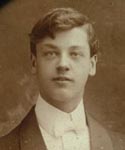
At age 15, Haydn entered the
Royal College of Music in London where he excelled in violin,
piano and composition. He was soon known as a prodigy, 'a
bright-looking little lad, all smiles and collar, who plays the
fiddle as it were the easiest thing in the world, as easy as
eating jam tarts' (The
Musical Times, 1 January 1898).
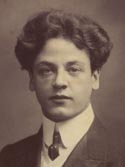
As a virtuoso violinist, he
toured the British Isles and Empire for eight years with the
famous Canadian soprano Emma Albani and her Concert Party.
In 1909, Haydn Wood married
Savoyard soprano Dorothy Court whom he had met while they were
both students at the Royal College of Music.
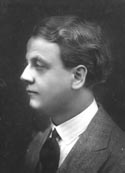
From 1913 to 1925, Haydn and
Dorothy toured the British music halls, week after week, two or
three shows a day, six days a week, spending their day off
Sunday driving to the next town. Their act consisted of songs
and ballads of his own composition, and well loved violin gems.
Together with their pianist, Haydn played obbligatos on his
violin while Dorothy was singing.
Haydn Wood became a
multi-talented professional, as a well-known violinist, a
successful composer of light and classical music, and a
conductor of his own works. The BBC, who commissioned some of
his compositions and for whom he conducted many concerts of his
works, often broadcast his music.
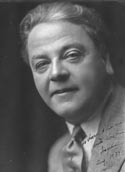
He succeeded in getting 180
songs and ballads published, as well as 86 light orchestral
pieces (suites, overtures, morceaux de concert, entr'actes,
intermezzi, rhapsodies, marches...), a piano concerto, a violin
concerto, variations for cello and orchestra, works for string
orchestra, a string quartet, solo works for piano, violin,
flute, oboe, choral works with orchestra, and a musical play. He
also composed a symphony,
which was never published.
Haydn Wood died in 1959 in
London.
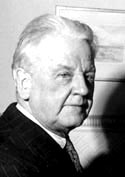
His heart-warming melodies have
entertained millions of listeners of all classes over the first
half of the 20th century. His legacy still casts a major
influence over British Light Music today.